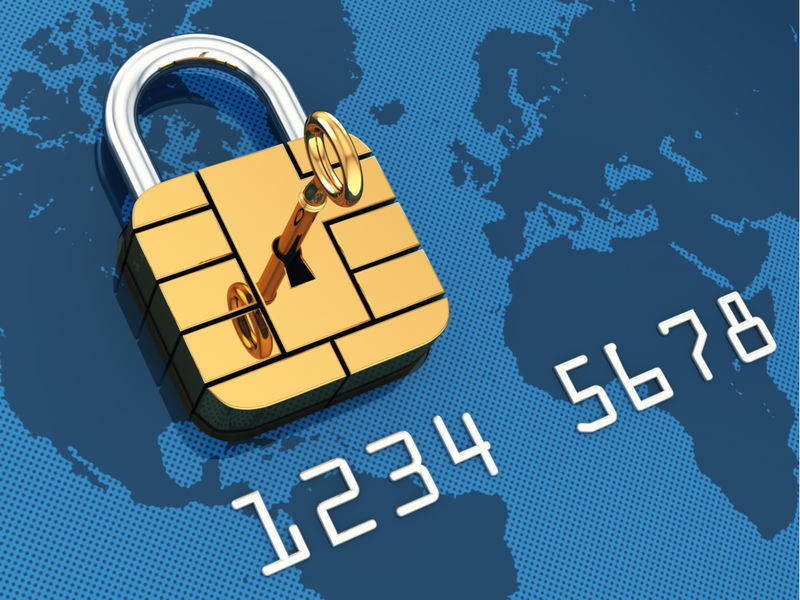How to Prevent Fraudulent Vacation Rental Payments
Getting hit with a scam rental charge can result in a loss of income, and disputing it is a difficult and time-consuming task. Since fighting vacation rental fraud can be an uphill battle, it’s important to protect yourself. Below are eight tips to spot and prevent scammers from taking business away from you.

1. Make sure your rental agreement is airtight
Before you rent out a vacation property, read through your rental agreement with a fine-tooth comb. Imagine a scammer is reading it with intentions of taking advantage of you. Include all the important information and make sure terms are clear. Use valuable resources and blogs like Homeaway to pick up valuable insights into what you should include in your rental agreement.
2. Know who your guest is
Taking the time to vet your guests can help prevent being scammed with fraudulent charges. Start by engaging in a friendly conversation to get to know your renter and get a better sense of their credibility. Conduct a Google search and use social media to find out if they are indeed legitimate. Surprisingly, you can learn quite a bit of information about a person online.
3. Check to see if information is consistent
Did you get the guest’s credit card verification code, the 3-digit security code (CVC) on the back of their card? Does the credit card on file match the information the guest provided? For any reservation taken online verify up-front that the renters home billing address matches the credit cards billing address. Not to be confused with a shipping address which can be a property elsewhere. If the home and billing addresses do not match, this may not be a legitimate booking so do not process the transaction.
You can manually lookup the guest's computer address on a site such as IP-Lookup.net. Verifying this information can help see if the location they are paying from matches the credit card information provided. The same thing can be done with their phone number. Use a reverse phone number lookup to see if they are the same person assigned to that number.
If you meet & greet your vacationer in-person, ask to see their government-issued identification and make a photocopy. And again verify their mailing address, billing address, phone number, and email, then match it against the information you have on file. If there are any red flags during this process, trust your instincts and avoid potential fraud by refusing to rent to this party.
4. Keep detailed, accurate records
Running a vacation rental property is a lot of work and it is easy to overwork yourself. Despite the challenges, do your best to stay organized. Staying on top of all your documents can protect you from fraudulent activities. Keep your accounting information as accurate as possible to track what business is coming in or out. If you are ever hit with a fraudulent chargeback, then you will be ready to provide all the essential documentation. Also, remember to shred any documents containing sensitive information such as credit card numbers or your business information. This will help protect both you and your guests.
5. Keep track of staff activities
Another reason keeping accurate accounting records is important is that fraudulent charges can be coming from within. Set the example at the top be transparent and to help ensure your managers act honestly. Make sure you have a detailed policy regarding what is expected from your employees and what is not allowed. Establish a clear distinction between employees doing accounting tasks and the handling of rental transactions or reservations. Having an extra set of eyes and being aware is a great way to prevent rental scams.

6. Be aware of last-minute bookings
A last-minute booking could be a sign of suspicious activity. Proceed with these reservations with caution. Be extra vigilant to see if they have provided you with an email that could hint to a fraudster like [email protected].
7. Know your rights and responsibilities
Vacation home rentals have been around long enough now that you should at least have a basic understanding of the benefits and risks. Companies like Airbnb make it clear what the expectations are for both the owner renting the property but also the vacationer. Take the time to review the information provided to you, it may just prevent you from being the victim of a scam.
8. What to do if you have been scammed
As the owner of the property, dealing with the credit card company can be a real challenge. In the vacation rental industry, many transactions are completed as card-not-present (CNP) transactions. So if you believe you have been ripped-off, your sole course of action may be to contact the scammers credit card company directly and advise them the cardholder using their payment method appears to be a fraudster.
The renters credit card company will require you to back up your claim with copies of the signed rental agreement, all email and text correspondance, links to your rental website and all websites where your property listing appears, links to review pages that comment on your vacation home and obviously a written summary of your situation.
While it takes time and effort, reviewing all reservations can prevent fraudulent vacation rental payments. Remember to do your research and trust your instinct regarding a renter. It could save you the hassle of going through the process of fighting fraudulent charges.
Learn how Kigo can help you simplify the vacation rental payment process!
This content was content was provided by Yapstone, a preferred payment processor that integrates with KigoPay.







